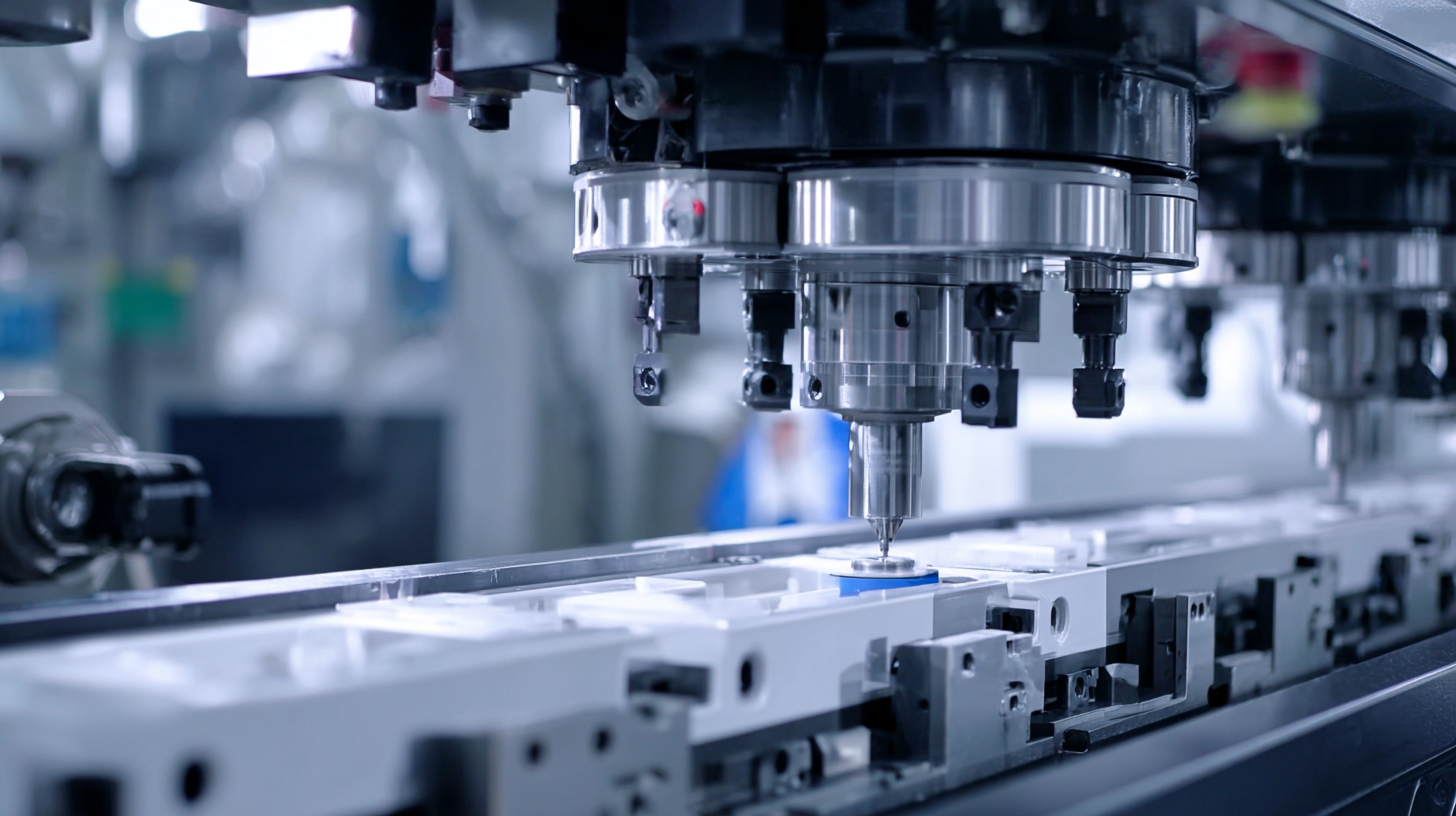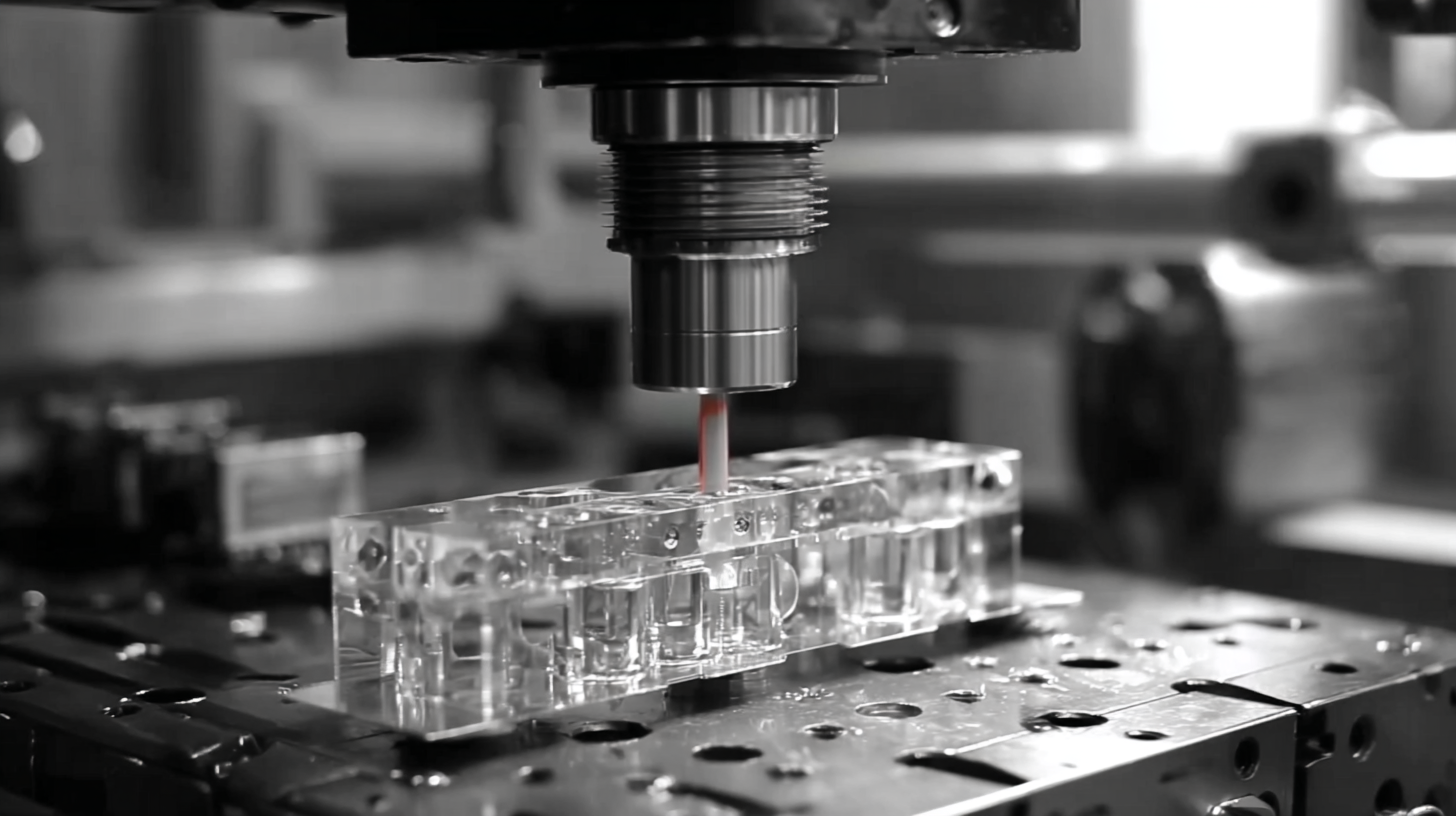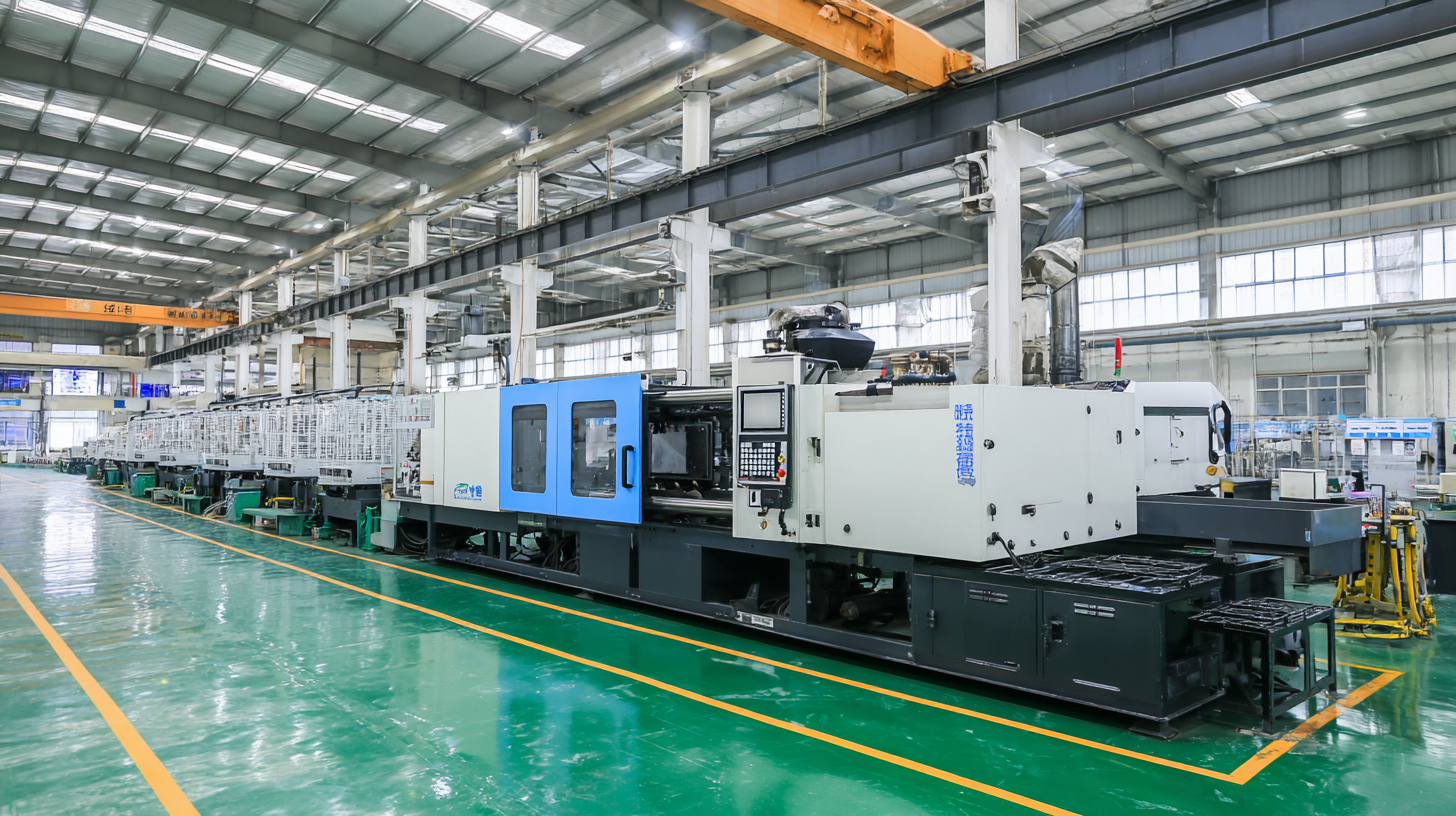
As the global demand for high-quality plastic products continues to surge, the importance of the injection moulding process has never been more pronounced. According to a recent report by Grand View Research, the global injection moulding market is expected to reach $400 billion by 2027, growing at a compound annual growth rate (CAGR) of 3.7%. This growth is fueled by the increasing application of injection moulding in various industries, including automotive, consumer goods, and healthcare. China, in particular, has emerged as a leader in this field, consistently introducing innovative techniques and advanced technologies that enhance efficiency and product quality. In this blog, we will explore how these innovations are transforming the injection moulding process and positioning China at the forefront of the global market.

The injection moulding industry in China is undergoing a significant transformation, largely driven by the introduction of innovative materials. These materials not only enhance the efficiency and quality of production but also open doors to new applications that were previously unimaginable. For instance, advanced polymers and bioplastics are being utilized, allowing manufacturers to produce lighter, stronger, and more environmentally friendly products. This shift is crucial as it aligns with global sustainability trends and customer demands for greener solutions.
Tips for manufacturers looking to innovate include investing in research and development to explore the potential of new materials. Collaborating with material scientists can lead to breakthroughs that significantly enhance product performance. Additionally, attending industry trade shows and seminars can provide valuable insights into emerging materials and technologies that can give your business a competitive edge.
Moreover, leveraging digital tools in the injection moulding process helps optimize the use of these advanced materials. Implementing smart manufacturing techniques can improve efficiency and reduce waste, contributing to both cost savings and environmental benefits. Do not underestimate the power of data analytics in monitoring material performance and quality, as this can lead to continuous improvement and innovation in product development.
The injection moulding industry is undergoing a significant transformation as sustainability takes center stage. Eco-friendly alternatives are rapidly emerging, allowing manufacturers to reduce their environmental impact while maintaining efficiency and product quality. Innovations such as biodegradable polymers and recycled materials are being embraced to create sustainable moulding solutions. These advanced materials not only minimize waste but also enhance the lifecycle of products, presenting a win-win for both businesses and consumers committed to environmentally friendly practices.
In addition to material innovations, the injection moulding process itself is being optimized for sustainability. Techniques such as energy-efficient machinery and closed-loop systems are being implemented to reduce energy consumption and waste generation. By integrating these eco-friendly practices into production lines, companies can significantly lower their carbon footprint. Furthermore, as global demand for sustainable products rises, businesses that prioritize these innovations in their moulding processes will not only lead the market but also contribute to a more sustainable future.

The injection moulding industry is undergoing a significant transformation with the adoption of cutting-edge technologies designed to enhance efficiency and production capabilities. Recent innovations, such as the iMFLUX technology, are enabling manufacturers to optimize processes by improving material flow consistency and reducing cycle times. This advancement is crucial as the industry seeks to meet the growing demand for high-quality plastic components in automotive and other sectors, with the automotive plastics market projected to reach $76.6 billion by 2032, growing at a CAGR of 7.8% from 2025.
In addition to process innovations, companies are expanding their manufacturing capabilities to keep pace with market demands. For instance, several facilities are enhancing their injection moulding capacities to strengthen supply chains and increase output. The modernisation initiatives reflect a broader trend characterized by investments in smarter, faster, and more efficient machinery. With manufacturers now processing tens of thousands of tonnes of plastic annually, the ongoing push for efficiency is not only elevating production standards but also aligning with sustainability goals by minimizing waste and energy consumption.
China's prominence in the global injection moulding market can be attributed to its relentless pursuit of innovation and a rapidly evolving manufacturing landscape. With state-of-the-art technology and highly skilled labor, Chinese companies have developed advanced moulding techniques that streamline production processes and reduce material waste. This competitive advantage not only lowers costs but also enhances the quality and precision of injected products, making China a go-to source for industries ranging from automotive to consumer goods.
Moreover, China's commitment to research and development in moulding technologies is unmatched. Investments in automation and smart manufacturing solutions have positioned Chinese manufacturers to respond quickly to market needs, adapting their processes to create custom solutions that meet stricter international standards. As a result, companies worldwide are recognizing the value of collaborating with Chinese moulding experts, leveraging their innovations to improve their own production capabilities and maintain relevance in the fast-paced global market.

China has emerged as a global leader in the injection moulding industry, showcasing remarkable innovations that have transformed manufacturing processes. Several case studies illustrate the success of advanced injection moulding applications, demonstrating how Chinese companies harness technology to enhance efficiency and quality. For instance, a leading automotive parts manufacturer implemented an integrated injection moulding solution that reduced production time by 30%. By utilizing smart automation and real-time data analytics, the company was able to optimize its supply chain and improve product consistency, proving that innovation can directly influence operational success.
Another compelling case is with the consumer electronics sector, where a Chinese firm developed a unique multi-material injection moulding technique. This innovation enabled the creation of intricate component designs while minimizing material waste. By combining plastic and metal within a single process, the manufacturer not only elevated product performance but also significantly reduced costs, allowing for competitive pricing in a saturated market. These success stories underscore China's commitment to leading the global market through continuous advancements in injection moulding technology, setting a benchmark for industries worldwide.
| Case Study | Industry | Process Innovation | Efficiency Improvement (%) | Sustainability Impact |
|---|---|---|---|---|
| Automotive Component Manufacturing | Automotive | High-Speed Injection Moulding | 30% | Reduced plastic waste by 20% |
| Consumer Electronics Encasing | Electronics | Multi-material Moulding Technology | 25% | Energy consumption decreased by 15% |
| Medical Device Manufacturing | Medical | Precision Injection Moulding | 40% | Enhanced recyclability of materials |
| Packaging Solutions | Packaging | Biodegradable Material Use | 20% | Reduced carbon footprint by 10% |
Copyright © 2025 The Toolroom Inc. All Rights Reserved.
Website Design St Louis by IQComputing